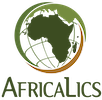Dr. Rebecca Hanlin is currently attending the UK Development Studies Association Conference being held this year at her old university in Milton Keynes, the Open University. Extremely interesting set of discussions at the event with keynotes that are questioning our approaches to development and how dominant world views influence these approaches. However, perhaps the most useful session so far has been a session for PhD students and Early Career researchers on how to get published. Three editors from different development studies journals gave their three top tips. The advice that I took away from the session was:
- Publishing is getting harder. Some journals have a desk rejection rate of 70% and an acceptance rate of 10%.
- Publishing and academia is a painful business! We all get rejection emails from journals (even the most established academics). Give yourself time to acknowledge the disappointment but don’t let it stop you trying again and/ more making the changes suggested.
- You don’t have to make all the changes suggested. Where all reviewers are in agreement; that probably means you should consider making the changes. Where there is a divergence of views; re-read that section of the paper and try to clarify what you were trying to explain and consider reading other material/ doing something different.
- You don’t have to make all the changes suggested. But you do need to be ready to explain why you didn’t decide to take on board some of the suggested changes.
- Ultimately, after any changes you make, read the whole paper again to make sure the paper still makes sense.
To increase your chances of acceptance and being given minor revisions consider the following:
- Make the abstract interesting (and easy to read – especially for journals (like in Development Studies) which are inter/multi-disciplinary in focus)
- Have as many people as possible read your paper before you send it to a journal; especially those who aren’t from your field (when submitting to a inter/multi-disciplinary journal)
- Consider the originality of the paper. For example, the issue you are writing about might not have been studied in economics but what about in sociology or history?
- Finally, as one speaker said to the audience, after all of this ‘be brave and keep going’!
Advice on getting published in development studies
